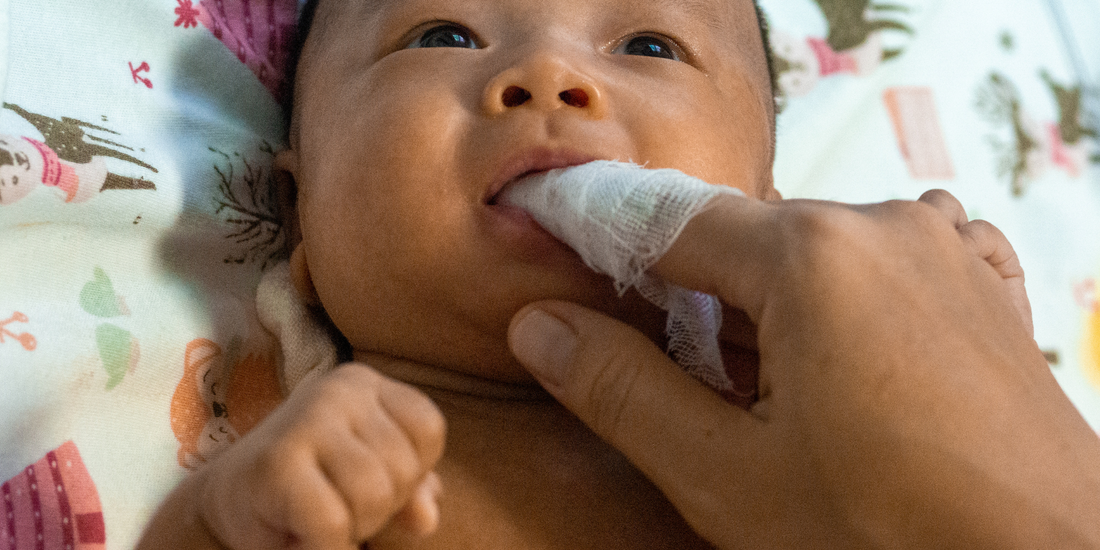
The Teething Survival Guide for Mamas
Share
When Do Babies Start Teething?
Your baby’s teeth begin forming as early as 6 weeks in the womb — long before you ever see a smile! Around 4–7 months, the first pearly whites start peeking through the gums.
But teething doesn’t mean it’s time for solids yet — your baby’s main nutrition should still come from breast milk or formula until about 6 months old, or until they can:
- Sit up unassisted
- Hold their head steady
- Pick up food with a pincer grasp
- Lose the tongue-thrust reflex
Fun fact: a few babies are even born with teeth!
Common Teething Symptoms
Every baby experiences teething differently. You may notice:
- Drooling and mild rash around the mouth
- Swollen or red gums
- Fussiness or clinginess
- Interrupted sleep
- Chewing or biting everything in sight
- Low-grade fever or loose stools
- Temporary drop in appetite
💡 If your baby has a persistent fever, vomiting, or severe diarrhea, contact your healthcare provider.
✅ Recommended Teething Tips (Mama-Approved)
1. Safe Teethers
Give your baby a BPA-free silicone or natural wood teether to chew on — it helps relieve pressure and stimulate gum comfort.
2. Cold Comfort
Soothe sore gums naturally with a frozen chamomile washcloth or breast milk popsicle. The cooling effect numbs discomfort while chamomile’s natural properties help calm fussiness.
3. Gentle Herbal Relief
For natural, plant-based comfort, use Legendairy Milk Organic Teething Gel — made with organic echinacea, chamomile, and clove to soothe inflamed gums safely (no harsh chemicals or numbing agents).
⚠️ Not Recommended (Skip These Fads)
1. Amber Teething Necklaces
Despite the hype, there’s no proven benefit — and they pose choking and strangulation risks. Most pediatric experts discourage their use entirely.
2. Undiluted Essential Oils
Clove oil is often suggested but can irritate delicate gums if not properly diluted. Instead, stick to herbal tinctures or baby-safe formulations like Legendairy Milk Teething Gel.
3. Benzocaine-Based Products
Avoid teething gels or sprays containing benzocaine — the FDA warns they can cause serious side effects in babies under 2 years old.
4. Teething Mittens
While adorable, mittens restrict your baby’s ability to explore and develop oral-motor skills. Let those tiny hands stay free and offer supervised teethers instead.
😬 Ouch! My Baby Bit Me!
If your little one decides to test out those new teeth while breastfeeding, here’s how to handle it:
- Offer a teether before nursing to ease biting urges.
- Watch for biting near the end of a feed when milk flow slows.
- Break suction gently by sliding a finger into the corner of the mouth.
- Apply breast milk or coconut oil on sore nipples to heal naturally.
- If pain or latch issues continue, consult an IBCLC (International Board-Certified Lactation Consultant).
Final Thoughts
Teething can feel endless, but it’s just another milestone in your baby’s beautiful journey. With safe, natural remedies and a little patience, you’ll get through it — one drooly smile at a time. 💛
